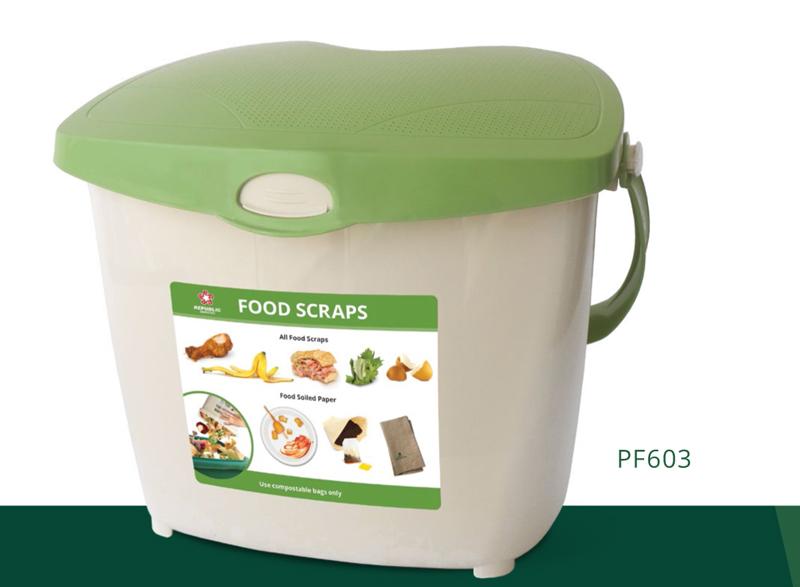Kitchen composting a sign of the times – and the law

CONTRA COSTA COUNTY, CA (Jan. 19, 2024) — If your New Year’s resolutions include reducing your carbon footprint, a new composting law will be right up your alley.
Senate Bill 1383 requires residents to compost organic waste like food scraps, plant trimmings and food-soiled paper. Called a “climate super pollutant,” organic waste emits 20% of the state’s methane – a greenhouse gas 84 times more potent than carbon dioxide.
Republic Services will deliver food composting pails to all Clayton residents the week of Jan. 22-26.
In Concord, single-family homes received the pails from Mt. Diablo Resource Recovery (MDRR) last September. Sarah Davis, community relations and governmental affairs manager at MDRR, said the multi-family plan will be rolled out next month.
Those living in Pleasant Hill started in-home composting years ago, according to Susan Hurl, municipal business manager at Republic.
The nose knows
The most common question residents have is about the smell from the compost pails people keep in their kitchens.
“I think once people use the pail, they will realize there is not that smell,” said Hurl, who lives in Lafayette and is already accustomed to the process.
Republic recommends lining your in-home pail with newspaper, paper towels or BPI-certified compostable bags. Hurl suggests freezing the material and putting it out the night before pickup. She said mixing food items with yard trimmings in your outdoor bin also reduces smells – and will help keep away pests and foraging animals.
Davis offered other helpful tips, such as placing baking soda in green carts and rinsing them frequently.
Residents also often ask how to know which things can be composted. Clayton’s new pails feature a graphic that shows acceptable items, such as coffee grounds and the paper filter, pizza boxes and used paper plates, food scraps, meat bones and flowers.
Items not eligible include:
- Metals, glass and plastic.
- Utensils and cups, even those labeled “compostable.”
- Shiny food-soiled paper products, such as milk cartons and take-out boxes.
- Pet waste or hazardous waste.
“We’re working on a QR code for everything that’s compostable and everything that’s not. It’s a list that’s always in progress,” Hurl noted.
Where does it go?
Both Republic and MDRR process the compost, converting it into a soil-enriching material.
“We either market it or give it back to the communities,” Hurl said. “We’ll have a compost giveaway at some point this year. People put it in their garden or use it for ground cover. There are all kinds of uses for it.”
While there will be enforcement for misplaced organic material at some point, Hurl said it’s starting out as an education process in Clayton.
“If there were to be food in the garbage cart, we’d leave what we call an ‘Oops’ tag,” Hurl said. “What we’ve learned during our route audits is that most people have good intentions and are trying to do the right thing. That’s all we can really ask of people.”
She likens the learning curve to when recycling bins launched decades ago.
“With anything new, there’s always some questions and complaints and then people settle in. Now, recycling is second nature, and I think this will become second nature, too.”
For more information, visit republicservices.com or mdrr.com.

Bev Britton
Bev Britton graduated with a degree in journalism from the University of North Dakota and moved to the Bay Area with her soon-to-be husband Jim in 1986. She was features editor at the Contra Costa Times in Walnut Creek before becoming managing editor of the Contra Costa Sun in Lafayette in 1995. She retired from newsrooms in 2001, but an ad for the Clayton Pioneer drew her back in. The family moved to Lake Wildwood in the Gold Country a few years ago - but working at the Pioneer keeps her in touch with her old neighborhoods in Concord and Clayton.
